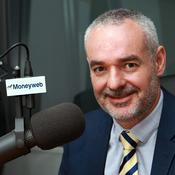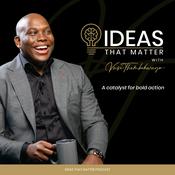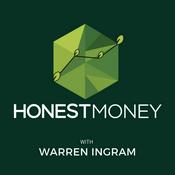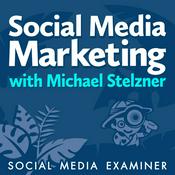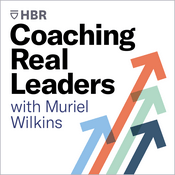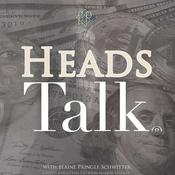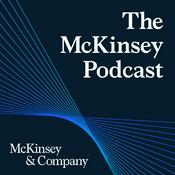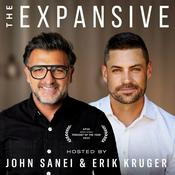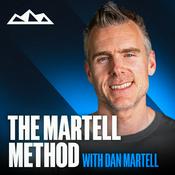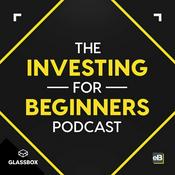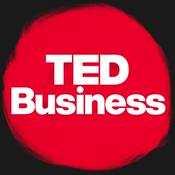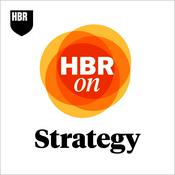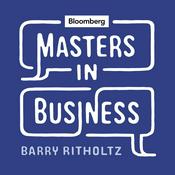143 episodes

Think Forward EP 142 - Hunting for Another Earth with Dr Sara Seager
2025/12/11 | 42 mins.
Welcome to this special crossover episode from our other show, Going Off World.In this episode, the hunt for alien life isn’t a sci-fi dream. It’s a patient, high-stakes investigation unfolding across labs, observatories, and space missions—and Sarah Seager is charting the course. We sit down with the MIT exoplanet pioneer to unpack how a field once defined by four puzzling worlds grew into a catalog of thousands, each challenging our assumptions about what planets can be and where life might take hold.We trace Dr Sarah Seager’s path from early skepticism about hot Jupiters to leading-edge missions seeking signs of life in exoplanet atmospheres and even the acid clouds of Venus. The conversation blends technology, theory, and personal resilience to map the long road to finding another Earth.If you care about exoplanets, biosignatures, Venus, and the future of discovery, this conversation is a guided tour of what it will take to spot another Earth and how that finding could reshape our place in the cosmos. If you enjoyed this episode, follow the show, share it with a friend who loves space, and leave a review to help more curious minds find us.• how exoplanet science matured from four planets to thousands• why hot Jupiters reshaped formation theories• Kepler’s impact and TESS’s role in finding follow-up targets• what biosignature gases are and why they matter• starshade and direct imaging to see Earthlike worlds• red dwarf habitability, tidal locking, and stellar flares• Venus phosphine debate and sulfuric acid cloud chemistry• realistic timelines, tech limits, and the long view• career foundations, generalist leadership, and mentorshipFind her over at SarahSeager.com. She is also on Facebook, Instagram, LinkedIn, and a bunch of other social media platforms. You can just search for her name, Sarah Seager.Thanks for listening to the Think Forward Podcast. You can find us on all the major podcast platforms and at www.thinkforwardshow.com as well as on YouTube under Think Forward Show.Order your copy of SuperShifts: www.bit.ly/supershifts ORDER SUPERSHIFTS! bit.ly/supershifts 🎧 Listen Now On: Apple Podcasts: https://podcasts.apple.com/us/podcast/think-forward-conversations-with-futurists-innovators-and-big-thinkers/id1736144515 Spotify: https://open.spotify.com/show/0IOn8PZCMMC04uixlATqoO Web: https://thinkforward.buzzsprout.com/ Thank you for joining me on this ongoing journey into the future. Until next time, stay curious, and always think forward.

Think Forward EP 141 - Banks Will Crumble Like Cookies, But Keep The Coffee Hot with Emmanuel Daniel
2025/10/28 | 52 mins.
Emmanuel Daniel unpacks how digital finance prioritized monetization over true inclusion, then traces a larger shift from markets to networks where information compounds value. We test CBDCs, stablecoins, tokenized deposits, and ask whether debt has become the economy shaping tech, geopolitics, and personal wealth.• VC‑driven digital finance and unmet inclusion claims• Personalization versus centralization in money and platforms• The ice trade analogy for financial inefficiency• CBDCs stalling, stablecoins rising, tokenized deposits emerging• China, India, and Africa leapfrogging legacy payments• DeFi’s network logic versus TradFi’s market logic• Debt as the economy and digitized sovereign liabilities• 2035 outlook on tech advantage and investable nations• History’s cycles informing finance futures• Personal concerns about growing insularity and cross‑border workFind Emmanuel’s work at emmanueldaniel.com. Think Forward Podcast: www.thinkforwardshow.com and on YouTube under ThinkForward ShowOrder your copy of SuperShifts: www.bit.ly/supershifts ORDER SUPERSHIFTS! bit.ly/supershifts 🎧 Listen Now On: Apple Podcasts: https://podcasts.apple.com/us/podcast/think-forward-conversations-with-futurists-innovators-and-big-thinkers/id1736144515 Spotify: https://open.spotify.com/show/0IOn8PZCMMC04uixlATqoO Web: https://thinkforward.buzzsprout.com/ Thank you for joining me on this ongoing journey into the future. Until next time, stay curious, and always think forward.

Think Forward EP 140: Afro Rhythms, Storytelling and Breaking Through with Ahmed Best
2025/10/20 | 42 mins.
What if the people best equipped to shape tomorrow aren’t engineers first—but emotional athletes? Our guest, Ahmed Best—actor, educator, Afrofuturist, and the pioneering performer behind Jar Jar Binks—shows how art can lead technology, not chase it. From South Bronx summers where hip‑hop was born to conversations with George Lucas at Lucasfilm, Ahmed traces a life lived at the edge of invention and explains why trusting artists to drive the tools changed cinema—and could change the future.We dive into dramatic narrative design, the class he created to teach future‑fluent storytelling that centers collaboration over hierarchy. Ahmed breaks down how performance capture emerged by following the actor, how the “used future” aesthetic reframed sci‑fi, and why the fundamentals of drama never age even as mediums flip from film stock to digital sensors and now to AI. He sees today’s AI as a creative accelerator that removes costly bottlenecks so humans can spend more time on what matters: feeling, choosing, and crafting meaning.Then we open up Afrofuturism through Afrohythms, the worldbuilding game he co‑created with Dr. Lonny Brooks. Using tension cards—“Black superheroes,” “James Baldwin,” and more—players define shared values, build planets, and practice radical imagination without the fear that keeps teams stuck. Ahmed challenges the industry’s obsession with “safe futures,” argues for protopia—incremental betterment we can actually feel—and points us toward the coming “bionexus,” where synthetic biology reshapes identity and possibility.If you care about culture, technology, and where they meet, this conversation is a map and a spark. Subscribe to Think Forward, share this episode with a friend who loves bold ideas, and leave a review to tell us the protopian story you want to help build.Order your copy of SuperShifts: www.bit.ly/supershiftsPodMatchPodMatch Automatically Matches Ideal Podcast Guests and Hosts For InterviewsOrder your copy of SuperShifts: www.bit.ly/supershifts ORDER SUPERSHIFTS! bit.ly/supershifts 🎧 Listen Now On: Apple Podcasts: https://podcasts.apple.com/us/podcast/think-forward-conversations-with-futurists-innovators-and-big-thinkers/id1736144515 Spotify: https://open.spotify.com/show/0IOn8PZCMMC04uixlATqoO Web: https://thinkforward.buzzsprout.com/ Thank you for joining me on this ongoing journey into the future. Until next time, stay curious, and always think forward.

Think Forward EP 139: Crafting Story Worlds with Peter Von Stackelburg
2025/10/06 | 55 mins.
We talk with Peter von Stackelberg about humility in consulting, why timeframes matter, and how narrative foresight turns data into action. We trace his path from journalism to futures, explore exploratory forecasts, and unpack story worlds, transmedia, and cycles.• building trust through listening and humility• why clear timeframes beat vague “someday” futures• exploratory forecasts with indicators and course corrections• using story to turn data into lived context• transmedia and story universes for sustained engagement• the layered timeline of trends, STEEP, and K-waves• what tracked in war, religion, and social change• a global platform for co-creating future stories• where to access Peter’s research and timelinesFor you to like and subscribe if you're watching this on YouTube, or to subscribe and leave a review on your favorite podcast playerOrder your copy of SuperShifts: www.bit.ly/supershifts ORDER SUPERSHIFTS! bit.ly/supershifts 🎧 Listen Now On: Apple Podcasts: https://podcasts.apple.com/us/podcast/think-forward-conversations-with-futurists-innovators-and-big-thinkers/id1736144515 Spotify: https://open.spotify.com/show/0IOn8PZCMMC04uixlATqoO Web: https://thinkforward.buzzsprout.com/ Thank you for joining me on this ongoing journey into the future. Until next time, stay curious, and always think forward.

Think Forward EP 138 - Building Future Thinkers with Peter Hayward
2025/9/30 | 56 mins.
Peter Hayward shares his journey from a problem-solving tax professional to becoming one of the most influential futures educators, training hundreds of futurists and co-creating the renowned FuturePod podcast series.• Finding foresight in mid-career after experiencing existential questioning about purpose• Joining Richard Slaughter's first Master of Foresight class before eventually succeeding him• Understanding foresight as developmental - evolving as human consciousness evolves• Discovering that people seek futures thinking when they can't yet articulate what they want to become• Recognizing that organizations don't have futures - only people have futures• Building organizational foresight by aligning personal purpose with organizational purpose• Creating a "dance" between delivering immediate value and creating space for longer-term thinking• Using AI as a tool while maintaining human responsibility for context and moral judgment• Working with frontline employees who bring sophisticated real-world thinking to futures work• Grounding all futures work in a clear moral foundation, as Wendell Bell advocatedReach out if you're interested in being featured on FuturePod - Peter welcomes hearing from people who believe they have something valuable to contribute to futures conversations.FuturePod: www.futurepod.comOrder your copy of SuperShifts: www.bit.ly/supershifts ORDER SUPERSHIFTS! bit.ly/supershifts 🎧 Listen Now On: Apple Podcasts: https://podcasts.apple.com/us/podcast/think-forward-conversations-with-futurists-innovators-and-big-thinkers/id1736144515 Spotify: https://open.spotify.com/show/0IOn8PZCMMC04uixlATqoO Web: https://thinkforward.buzzsprout.com/ Thank you for joining me on this ongoing journey into the future. Until next time, stay curious, and always think forward.
More Business podcasts
Trending Business podcasts
About Think Forward: Conversations with Futurists, Innovators and Big Thinkers
Listen to Think Forward: Conversations with Futurists, Innovators and Big Thinkers, A Bit of Optimism and many other podcasts from around the world with the radio.net app
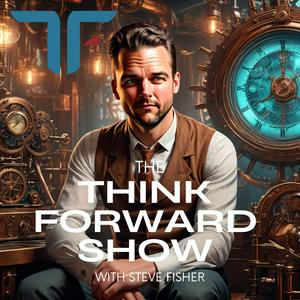
Get the free radio.net app
- Stations and podcasts to bookmark
- Stream via Wi-Fi or Bluetooth
- Supports Carplay & Android Auto
- Many other app features
Get the free radio.net app
- Stations and podcasts to bookmark
- Stream via Wi-Fi or Bluetooth
- Supports Carplay & Android Auto
- Many other app features


Think Forward: Conversations with Futurists, Innovators and Big Thinkers
download the app,
start listening.


